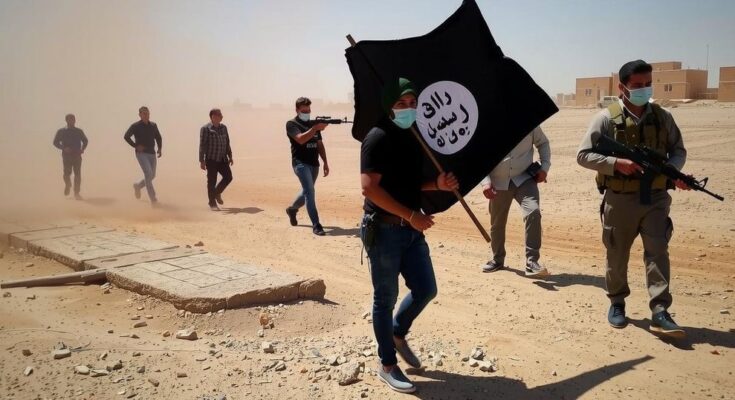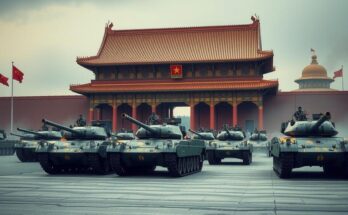General Mazloum Abdi, commander of the SDF, warns that ongoing Turkish airstrikes could enable the return of ISIS in Syria. Despite a U.S.-mediated ceasefire, Turkish assaults have increased, undermining security operations over ISIS militants. U.S. officials are in active discussions to manage the situation, highlighting the precarious balance required to maintain control and prevent extremist factions from regaining power.
In an exclusive interview with Fox News, General Mazloum Abdi, the commander of the Syrian Democratic Forces (SDF) and a key U.S. ally, expressed serious concerns regarding the resurgence of ISIS due to ongoing Turkish military strikes against his Kurdish fighters. Despite a U.S.-brokered ceasefire that was established, Turkish attacks have escalated, with General Abdi citing as many as eighty drone strikes per day. This has severely compromised SDF operations, particularly in managing the 45,000 ISIS militants and their families they guard in multiple locations across Eastern Syria. General Abdi warned that if the situation continues to deteriorate, the SDF may collapse under pressure, ultimately allowing ISIS to regain strength.
The overall security situation in Syria has become increasingly precarious following particular recent events, including the Turkish military’s intensified campaign against Kurdish forces. Since the fall of Bashar Al Assad’s regime, General Abdi highlighted a significant reduction in the number of SDF forces guarding ISIS prisons, explicitly noting, “The number of guards there have diminished by half which is putting them in a fragile position.” He emphasized that any slackening of military presence could lead to an environment ripe for a resurgence of ISIS operational capabilities.
In light of these developments, U.S. National Security officials, including John Kirby, underscored the importance of maintaining close communication with both the SDF and Turkish counterparts. Kirby pointed out the potential withdrawal of U.S. forces if the SDF were compelled to retreat, revealing the broader implications for regional stability. Furthermore, Secretary of State Antony Blinken met with Turkish President Recep Erdogan to emphasize the need for all parties involved to respect human rights and humanitarian laws, thereby ensuring the coalition’s ongoing mission against ISIS.
General Erik Kurilla of CENTCOM pledged that the U.S. military remains committed to preventing ISIS from reconstituting its power in the region. Meanwhile, General Abdi conveyed deep worries regarding the possible future of Syria, suggesting that without the inclusion of various minority groups, the nation could be poised for another civil war. He concluded, “So if not that takes us to a bloody civil war in the country and that will put us in huge stage of escalatory path that no one can predict the fate of that.”
As situations continue to evolve, the SDF recently announced a truce with Turkish-backed rebels, showcasing the desperate need for diplomatic solutions to ensure regional safety and to keep extremist threats at bay.
The article discusses the precarious situation in Syria, particularly how ongoing Turkish military action against Kurdish forces threatens to destabilize the security apparatus responsible for holding ISIS militants in check. The article highlights the SDF’s critical role, supported by U.S. forces, in combating ISIS and managing the risks posed by the release of potential militants due to the SDF’s diminished capacity amid Turkish attacks. This context underscores the strategic importance of U.S. involvement and the multifaceted nature of the conflicts in Syria, including the need for inclusive governance to prevent further civil strife.
In summary, the article highlights the urgent warning from General Mazloum Abdi regarding the resurgence of ISIS if Turkish military actions against the SDF continue unchecked. The reduction in forces guarding ISIS militants poses a significant risk to regional stability, with potential implications for civil war if minority groups are not included in Syria’s political framework. The United States’ role remains pivotal in supporting the SDF and countering ISIS, although future actions will depend on complex diplomatic engagements and battlefield realities.
Original Source: www.foxnews.com




